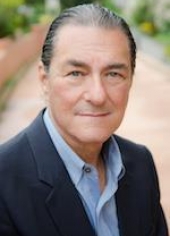Alzheimer’s Disease Neuroimaging Initiative: Working to Defeat the Silent Epidemic
The following article was written by Michael W. Weiner, MD, Director of the SFVAMC Center for Imaging of Neurodegenerative Diseases, Principal Investigator of the ADNI, and 2011 recipient of the Ronald and Nancy Reagan Research Award from the Alzheimer’s Association.
We are lucky to be living in a time of significant scientific advancements - allowing us to live healthier, longer lives. But longer life spans increase the likelihood of age-related health conditions such as Alzheimer's disease. Alzheimer's is the sixth-leading cause of death in the United States, affecting 5.4 million men and women (and growing). It is also the only top 10 killer in the United States that cannot be prevented, cured or even treated effectively. This disease hits close to home for me, as, unfortunately, my mother now has dementia from Alzheimer's disease and is being cared for in an Assisted Living facility.
Why not? For those of us in the research community working toward a cure, the greatest challenge we face is not the disease itself. The biggest hurdle in Alzheimer's is finding enough volunteers for studies- like the Alzheimer's Disease Neuroimaging Initiative (ADNI)-to allow the research to continue at the pace needed to be successful against this "silent epidemic."
As the largest and most comprehensive Alzheimer's disease (AD) research study of its kind, ADNI is helping to identify the earliest signs of AD, when brain damage begins. With better knowledge of the earliest stages of the disease, we may be able to test potential therapies earlier, when they have the greatest promise for slowing down progression of this devastating disease. I participate in ADNI myself as a patient. I've had all the procedures for the past 6 years. I've done this to experience what each subject goes through, and I assure you that participating is very educational, safe for patients, and involves very little discomfort. Even fun!
ADNI's research has made significant inroads into this complex disease, and has put us at the cusp of further discoveries that could help better treat AD. To continue the momentum, we must spread the word that everyone can contribute to furthering research. No medical degree required.
I encourage you to lend your voice to this issue and raise awareness of the importance of clinical trials in the fight against Alzheimer's. Better yet, consider participating in the ADNI trial. We are seeking normal persons, patients with AD, and individuals with mild cognitive impairment to better understand the breadth and progression of the disease. The age range is 55 to 90.
Changing the face of AD is possible, but we can't find the answers we need without volunteer partners in science. It will take everyone's involvement - researchers and clinicians, doctors, patients, friends and family members, and trial participants - to fight this disease effectively. Together we can continue to enhance lives by contributing to the advancement of science. To learn more, please go to www.adni-info.org or call 1-800-432-4380 and you will be hold how to contact an ADNI site near you. We have an ADNI site at UCSF headed by Dr Howard Rosen at the UCSF Memory and Aging Clinic in the Department of Neurology.

